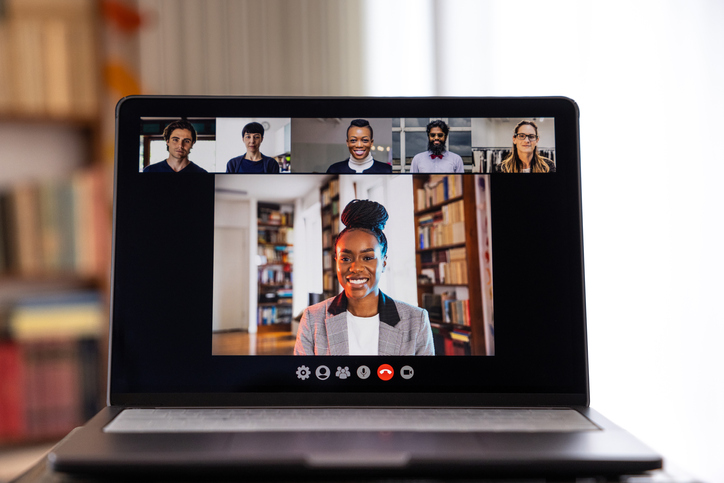“Mediation” has been part of the legal landscape for decades. Efforts to settle sometimes contentious litigation with the help of a skilled mediator have the potential to save clients time, money, and mental and emotional angst. For years, mediation (or some other form of alternative dispute resolution) has been required in both family matters and civil litigation here in Maine. What has changed more recently is the “venue”.
Until recently, mediations were generally held in person, with perhaps an out-of-state party or insurance company representative participating by phone. The parties would gather at the offices of one of the attorneys, or perhaps at the mediator’s office. The mediator would often meet with everyone together at the beginning of the session, then place the parties in a separate room and engage in “shuttle diplomacy” back and forth in an effort to find middle ground. Occasionally the mediator would pull just the attorneys into another room for a conversation, as well.
Two things have happened to fundamentally change the practice: the availability of Zoom technology and the pandemic. Since March of 2020 when the word “COVID” entered our vocabulary, we have all had to find ways to do remotely what was formerly done face to face. Although we are hopefully coming out of it now, the pandemic forced us to find different ways to “meet”, whether it was visiting with extended family or working from home. The rise of technologies like Zoom and Google Meet has provided us with the platforms to do so.
When it comes to mediation, Zoom has certain important benefits. Parties and their attorneys need not travel to a central meeting location, saving both time and fees. Everyone can still “be” in the same room or in separate rooms, just as before, through breakout room features. The parties and mediator can still share documents on their screens.
I must admit, though, that I think the disadvantages often outweigh the time saving and convenience described above. I am spending increasingly more time in my practice acting as a mediator myself, and I find that the lack of live, in-person contact sometimes decreases the opportunity for getting to “yes.” As a mediator, it is so important that I establish a relationship of trust with the litigants, so that they will feel I am an honest broker when I am trying to point out both the strengths and weaknesses of their case and move towards compromise. It is so much easier to do that live and in person. Sometimes just casual face-to-face discussion about the weather, how the Red Sox are doing, or learning about their family can lead to a rapport so much more easily in person than through a computer screen. That reservoir of goodwill between clients and mediator can mean a lot in closing the deal.
- Roger Katz, Attorney, Mediator, Managing Partner of LKB

Recent Comments